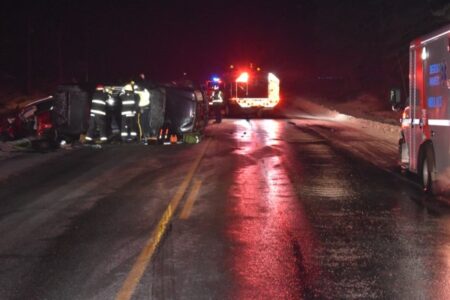Cougars and cameras and deer, oh my! BCWF holds 50/50 fundraiser
A fundraising initiative by the BC Wildlife Federation will give locals a chance to win big while supporting important wildlife projects.
Order your tickets by midnight, Friday, June 24, 2022 for a chance to win the 50/50 Jackpot – up to $496,250.
The winner will be drawn on Monday, June 27, 2022 at 1 p.m.
The proceeds from the 50/50 will be distributed between a variety of conservation and education initiatives, including the Southern Interior Mule Deer Project, the SIM Deer camera project, and the Southern B.C. Cougar Project.
THE SOUTHERN INTERIOR MULE DEER PROJECT
The Southern Interior Mule Deer (SIM Deer) Project is the largest collaborative mule deer research project in B.C.’s history. Its goal is to learn how to restore mule deer populations by studying how landscape change and predator-prey communities are affecting current populations.
The project is a collaboration between the Bonaparte Indian Band, Okanagan Nation Alliance, University of BC-Okanagan, University of Idaho, British Columbia Fish and Wildlife Branch, and the B.C. Wildlife Federation.
In 2021, the capturing and collaring team added 91 new collared deer to the project. After the exceptionally dry and fiery summer, the team made it a priority to find funding and time to collar fawns to help measure the impact of the previous summer on overwinter fawn survival. In total, the project has collared 471 deer since March 2018.
THE SIM DEER CAMERA PROJECT
The SIM Deer camera project is focused on gathering evidence to better understand how B.C.’s changing landscapes can influence mule deer. The team has established 250 camera sites across 30,000 km2 of mule deer country in B.C.’s southern interior. The collection of photos (over 2.5 million taken since the project began in 2019 through 2021) will help the team determine how factors like wildfires, logging, roads, and people influence the distribution and activity patterns of mule deer.
SOUTHERN B.C. COUGAR PROJECT
The Southern B.C. Cougar Project aims to address key knowledge gaps on cougar ecology in British Columbia’s southern Interior. The team is tracking cougar behaviour and predation of mule deer, white-tailed deer, moose, and elk near wildfires, roads, and clear-cuts.
The cougar project is supported by the Habitat Conservation Trust Foundation (HCTF), the British Columbia Conservation Foundation (BCCF), the National Science and Engineering Research Council (NSERC), Innovation Canada, Okanagan Chapter of the B.C. Wildlife Federation (BCWF), the Okanagan Nation Alliance, and local clubs and volunteers.
The objectives of the study include analyzing cougar kill rates and diet composition where mule deer and bighorn sheep are in decline, quantifying cougar population response to hunter harvest, and analyzing individual cougar response to land-use change from forestry and wildfire.
From December 2019 to December 2021, the team has GPS-collared 33 individual cougars (23 females, 10 males) and confirmed 560 cougar kills to understand the seasonal habitat use and diet of cougars. They are further monitoring female reproductive success and kitten survival by ear-tagging 1-month old kittens and installing cameras at the mother’s kills
























Comments